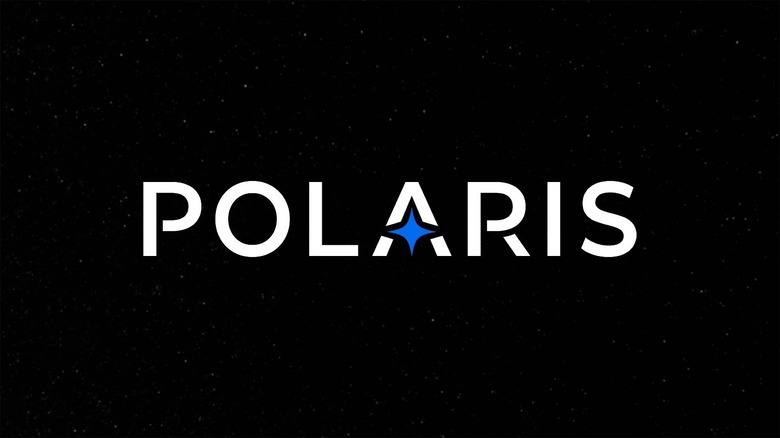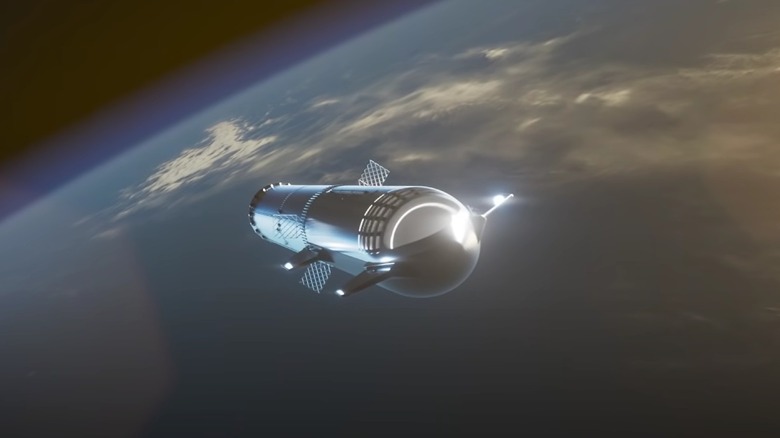Polaris Program Taps SpaceX To Set New Starship And Dragon Records
Billionaire Jared Isaacman has announced a new initiative called Polaris Program that will, among other things, help "rapidly advance human spaceflight capabilities." The program was revealed on February 14, 2022, by Isaacman, the founder and CEO of Shift4 and former mission commander on the 2021 orbital spaceflight Inspiration4 that featured private citizens as crew members.
Up to another three crewed spaceflights will take place under Polaris Program, an effort that will, the initiative has revealed, "ultimately culminate in the first flight of SpaceX's Starship with humans on board." For its part, Polaris Program's future missions will be used to demonstrate tech related to space travel, as well as conduct research on topics ranging from decompression sickness to space radiation's impact on human health.
Though three missions are planned, Polaris Program has only detailed the first one at this time — it's called "Polaris Dawn," and it is expected to take place no sooner than Q4 2022. Isaacman, as with the aforementioned Inspiration4 spaceflight, will serve as mission commander.
"Polaris Dawn" mission detailed
Polaris Dawn will involve the following four crew members: Isaacman as the mission commander, Scott "Kidd" Poteet as the mission pilot, Sarah Gillis as a mission specialist, and Anna Menon as both a mission specialist and the mission's medical officer. Assuming everything goes as planned, Polaris explains the mission will involve SpaceX's Dragon crew capsule, which will launch from the Kennedy Space Center on the company's Falcon 9 rocket.
Once in space, the crew will spend up to five days working to meet the mission's various objectives, including (hopefully) performing the first commercial spacewalk utilizing SpaceX's EVA spacesuits. That won't be the only potential milestone set by the mission, however, as it will also likely "reach the highest Earth orbit ever flown," Polaris Program said as part of its announcement.
Beyond its research objectives, which will include studying a space-related vision problem called spaceflight associated neuro-ocular syndrome (SANS), the crew will also be the first to test a laser communications system based on SpaceX's Starlink. Many of these objectives will contribute data with future long-term space missions in mind, including ones that may result in humans establishing a presence on Mars. Polaris specifically points toward the EVA spacesuits, communications test, and each research objective as necessary efforts to help space agencies and private companies prepare for crewed missions into deep space.
Polaris arrives only days after SpaceX's big Starship concept
The Polaris Program announcement comes only a few days after SpaceX CEO Elon Musk held a SpaceX Starship update broadcast, during which he talked about the next anticipated milestones for the spacecraft, as well as topics ranging from "the deep meaning" behind the effort to the reasons he envisions a multi-planetary future for humanity.
The event was joined by a SpaceX concept video showing the private space company's futuristic Starship launching on a future mission to Mars, giving the public a unique look at its upcoming reusable spacecraft and the role it may play in bringing humanity to the red planet.
It's no secret that Musk sees a future in which humans live on more planets than just Earth, and he kicked off his February 2022 presentation by revisiting this topic. "There's always some chance that something could go wrong on Earth," Musk said while explaining the motivation behind Starship. "It is very important — essential — that over the long-term, that we become a multi-planet species."
Starship is, Musk asserts, a step toward that multi-planetary future. The spacecraft is comprised of two components: the upper stage Starship spacecraft, as well as the Super Heavy first-stage booster. When combined, the system will be able to send astronauts and cargo into deep space. Polaris Program will help pave the way for SpaceX's greater ambitions, though we're still a long way off from human settlements beyond Earth.


